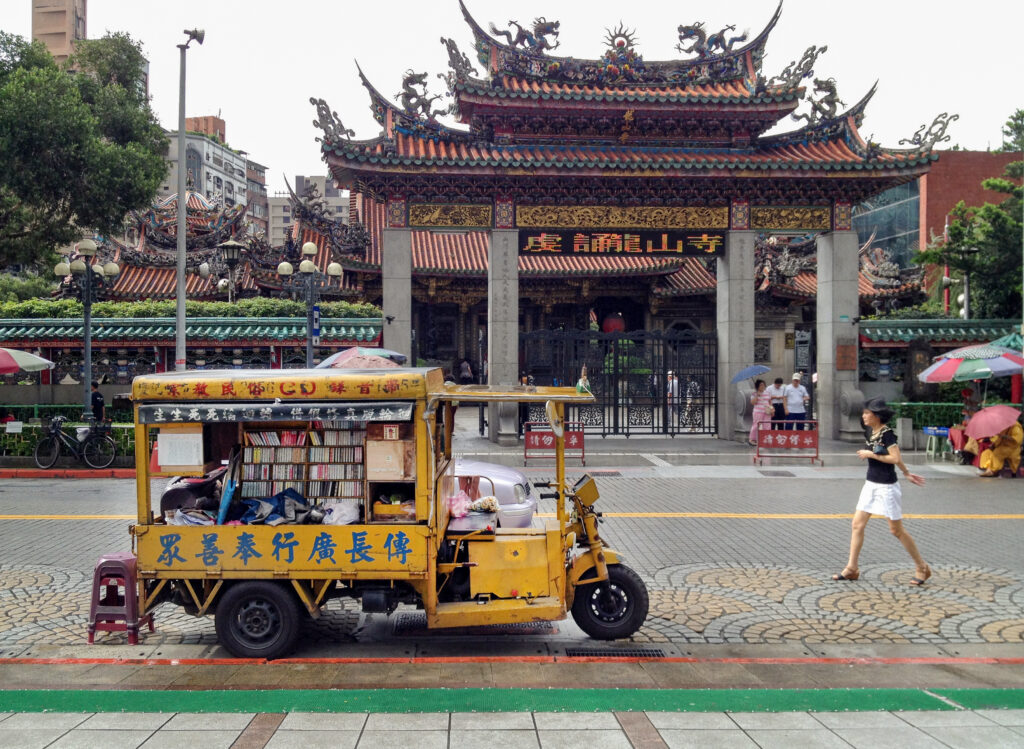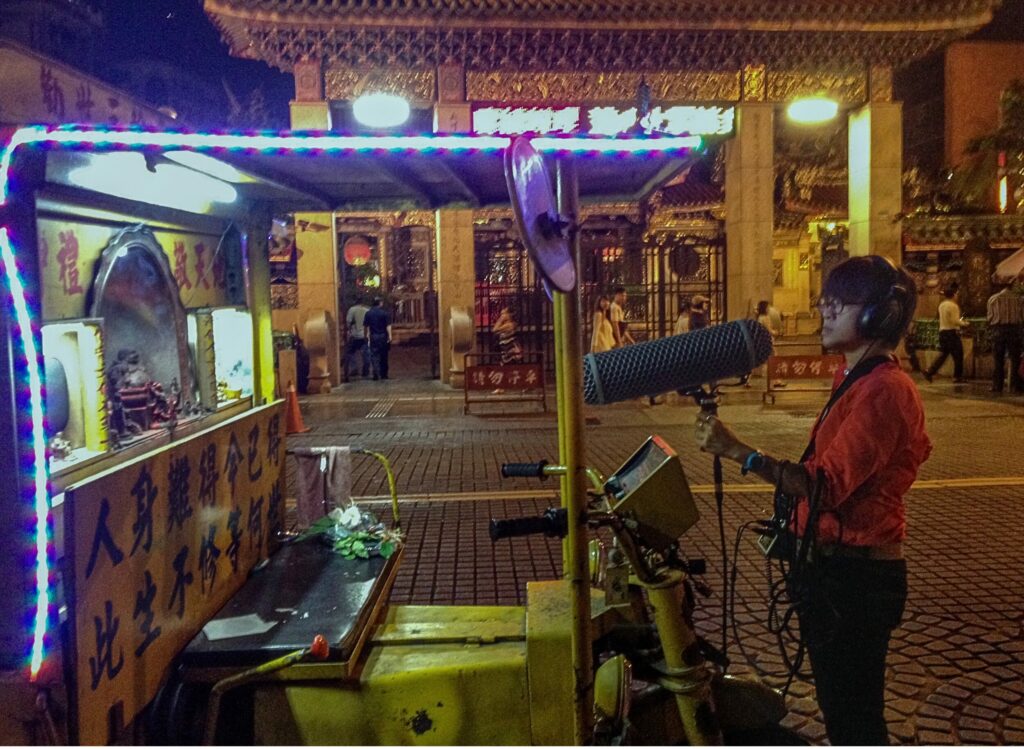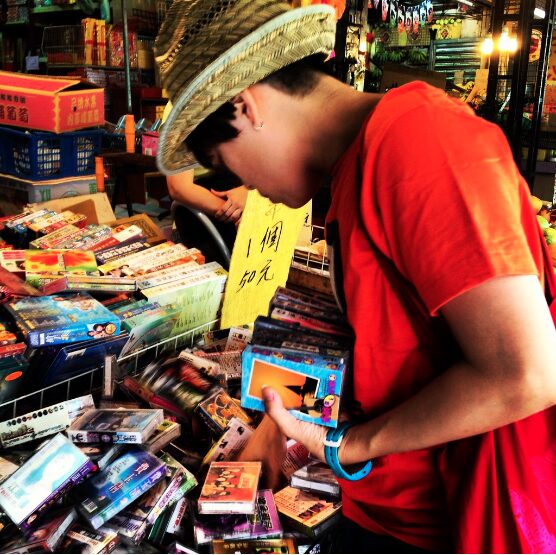Since 2009, I’ve been researching nakashi, an itinerant performance practice that emerged in Taiwan during the Japanese Occupation era in the 1930s. I explore the sound and meaning of nakashi in the context of urban development, mobility, disability, low-resource technology, and street economy.
Most of the living musicians associated with the tradition have congregated in the north of the Taipei City near Beitou and Danshui, since the golden era of nakashi in Taiwan in the 1970s and 1980s. But nakashi, both as a cultural practice and a trope, has extended beyond the vicinity of Taipei.


Nakashi is an itinerant performance practice in Taiwan. Brought over from Japan during the Japanese Occupation Era, Nakashi in its original Japanese is “Nagashi” (流し), meaning “flow.” Flow refers to a flexible mode of performance that has spatial and social connotations. Nakashi musicians use sounding objects such as instruments and loudspeakers to create ad hoc, mobile stages. Traditionally, using acoustic guitar and accordion, Nakashi musicians traveled on foot to perform popular songs of their time in tea parlors and hot springs resorts.
Over time, nakashi performers innovate their practices by constructing stages on pickup trucks and farm tools to set up performances in the streets and public areas such as temple plazas. Equipping these mobile stages with loudspeakers, they turn toward the streets and public spaces as their stage and spontaneously attract audiences.
Nowadays, you can find Electric Flower Truck 電子花車), where trucks with long truck beds have been converted into a mobile platform with a self-contained electric stage setup with amplified sound and lighting. These trucks are expensive to rent, and can be seen at important temple celebrations.
For this project, I have done field recordings and interviews with musicians along with some archival and ethnographic research. I’ve gone deep into the archives –usually looking for cassettes, CDs, and vinyls in dusty bins in record stores in Taiwan or mobile cassette vendors at day markets. Here’s a guest DJ set I did for KCHUNG that features some of this music. Another session titled “Taiwan Transonics” for dublab in 2017.

I kept a blog diligently about this research. Read here.
Nakashi has inspired me to create many projects: the aesthetics of spectacle in my Taiwanese surf rock band Dzian!, the mobility design central in Movable Parts, and the high tech / low tech approach in songwriting in Bitter Party.
More:
My Nakashi blog
Bitter Party
Movable Parts
Guest DJ set on Taiwan street music for KCHUNG
Guest DJ set “Taiwan Transonics” for dublab